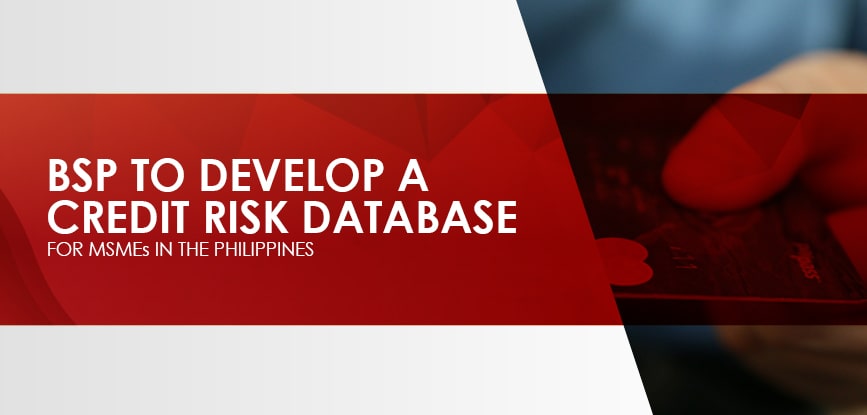
BSP to Develop a Credit Risk Database for MSMEs in the Philippines
The Bangko Sentral ng Pilipinas (BSP), or the central bank of the Philippines, announced that it is working with various government agencies and corporate partners in the development of credit scoring models and the establishment of a credit risk database to support Micro, Small, and Medium Enterprises (MSMEs) in the country.
BSP Governor Benjamin E. Diokno disclosed the plans towards achieving their goal of strengthening the country’s financial infrastructure by supporting innovation and bridging the information gap during an event for the Philippine Exporters Confederation on August 16.
“The BSP has been working with the Credit Information Corporation (CIC) in building a strong and reliable credit information system. Likewise, we are working with the Government of Japan to establish a Credit Risk Database (CRD) that will produce scoring models predicting the creditworthiness of SMEs,” BSP Chief Diokno said in his speech.
Chief Diokno explained that the credit risk database would help improve the access of MSMEs to financial loans and opportunities through risk-based lending and lessen the dependence of banks on collateral.
Together with the agriculture sector, MSMEs form the backbone of the Philippine economy. They currently account for 99.6% (911,768) of the country’s enterprises and generate an estimated 61.6% of the total employment within the country.
Despite having significant growth and promise as well as being a source of livelihood for millions of Filipinos, the MSME sector is yet to realize its potential due to the unique challenges it is currently facing.
On the market supply front, the challenges derive from the wrong perceptions about MSMEs.
They are often said to be a low-profit and high-risk investment as compared to corporate and consumer markets and according to Chief Diokno “This aggravates the lack of understanding of the MSME segment. It results in the scarcity of appropriate financing products and the inability of banks to cater effectively to MSMEs.”
On the side of demand, MSMEs increasingly show hesitance to approach banks for finance due to the frequent scarcity of collateral and credit history needed for all business loan applications.
The shortage of access to credit remains as the primary barrier to the further development and sustainability of MSMEs.
“They have limited business capacity and financial management skills to meet loan requirements capably. In addition, they have limited knowledge of alternative modes of financing,” the BSP chief added.
During his speech, Chief Diokno took the time to mention existing legislation designed to address challenges and constraints to MSMEs’ access to credit. He cited the Personal Property Security Act (RA No. 11057), and the Agri-Agra Reform Credit Act of 2009 (RA No. 10000). He said BSP is working to further accelerate banks’ compliance with these laws.
“The introduction of updated and more flexible provisions in these laws would help MSMEs — especially those that are agriculture-related — to gain access to credit, leverage innovative models, and induce banks to venture into MSME and agriculture financing with better terms and standards for compliance,” Chief Diokno said.
